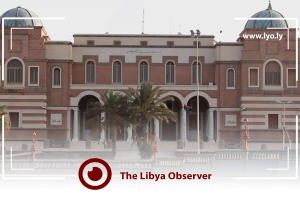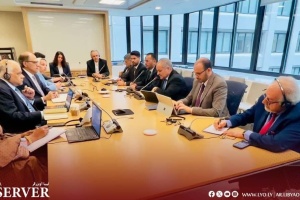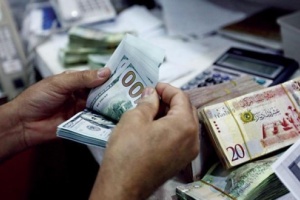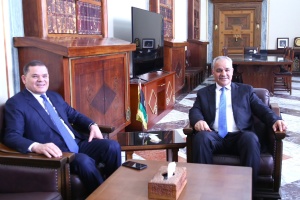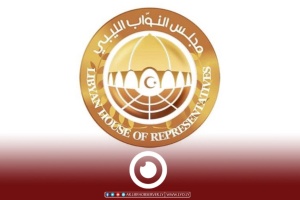The Speaker of the House of Representatives (HoR), Aqila Saleh, has declared that the ongoing blockade on the flow of oil and gas will continue until the reinstatement of Central Bank Governor Saddek Elkaber, who was dismissed by the Presidential Council (PC).
Saleh justified the shutdown as a measure to "protect the wealth of the Libyan people from exploitation and theft, and to safeguard the nation's resources," according to a statement from his office on Tuesday.
In a press release, Saleh emphasized that the HoR's decision to appoint the Central Bank's Governor, his deputy, and the board was made in accordance with legal procedures. He asserted that Elkaber and his deputy, Marai Al-Barassi, should resume their duties managing the Central Bank as prescribed by law.
Saleh also mentioned that the HoR is set to confirm the Central Bank's new board of directors in the coming days.
Last Tuesday, the House voted to reappoint Elkaber as Governor, with Al-Barassi as his deputy. Saleh expressed his surprise over the appointment of Mohammed Al-Shukri as "an illegal governor at this time, especially after the unification of the Central Bank of Libya."
He noted that despite Al-Shukri's appointment in 2018, he has neither taken the legal oath nor assumed his duties.
Saleh underscored that the authority to appoint the Central Bank Governor does not lie with the PC, describing its actions as violations of the law, the constitutional declaration, and the political agreement.
He reiterated the HoR's commitment to its responsibilities, stressing that the appointment of the Central Bank Governor is a prerogative of the House in consultation with the High Council of State (HCS).
In his closing remarks, Saleh called on the Attorney General to "initiate criminal proceedings against those involved in the storming of the Central Bank, to begin investigations immediately, and to report on the actions taken and the results of the investigations."
He urged all parties to "reverse the violations, respect the rules of jurisdiction, enforce the laws, and adhere to constitutional legitimacy."
The United Nations Support Mission in Libya (UNSMIL) has announced plans to convene an emergency meeting with the parties involved in the Central Bank crisis in an effort to reach a consensus. UNSMIL has called for urgent steps to de-escalate the situation and expressed deep concern over the current state of affairs in Libya, warning that unilateral decisions could have severe consequences, potentially leading to financial and economic collapse.



